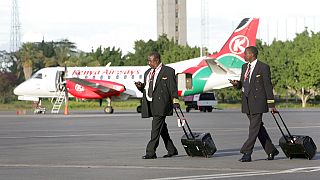Africa
The private sector can use its assets to better support refugees and host communities to be self-sufficient, according to a new study by the International Finance Corporation (IFC).
The report indicates that there are alternative ways for private sector companies to support the more than 70 million forcibly displaced people, globally – other than humanitarian assistance.
The study-conducted by IFC in partnership with The Bridgespan Group examined more than 170 private sector initiatives focused on refugees and host communities in Africa and the Middle East.
“To a large extent, particularly when you go into protracted refugee situations where people have been there living in camps, or similar areas, for years and sometimes for decades’‘, said Michel Botzung, IFC’s manager for fragile and conflict situations in Africa. ‘‘Just relying on a purely humanitarian care and maintenance approach that provides goods and services to refugees and considers them as passive receivers is probably not a sustainable solution,” he added.
The study identifies an emerging growth of initiatives that lessons can be drawn from to drive success among refugee communities and the private sector.
“Seeing refugees and host communities living in the vicinity of the camps or areas largely populated by refugees, brings to mind elements of a supply chain. They can either produce goods or services that are then being bought by some of the companies in the private sector,” said Botzung.
The study also highlights ways to address the negative impacts of forcible displacement and uplift refugees.
The report points to a start-up that allows refugees in Jordan to pay for food with a simple eye scan, Sanivation, which is providing jobs to migrants in Kenya, and Inyenyeri, which is helping tackle pollution at a major refugee camp in Rwanda.
“When we speak about innovation, new initiatives, I think the type of financing that will be a little bit more flexible, much more similar to venture capital to a large extent or financing for startups, is really a key element; and we see that as a key enabling factor,” said Botzung.
The study also found that firms can scale up their impact on refugees and host communities through innovative financial tools and products, cross-sector partnerships, and better access to market information.













01:15
Africa: About 51 million lives saved through immunization programme - WHO
Go to video
Police evict migrants from a makeshift tent camp in Paris
01:30
UN reports widening global inequality in sexual and reproductive health and rights
01:53
EU parliament approves new policies that make migration, asylum harder
02:37
Charity: More than 10 million Sudanese children have been in warzone
01:19
Sudan: over 25 million people facing humanitarian crisis, says UNHCR